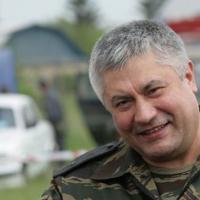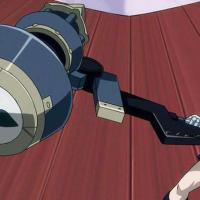Kirov Sergey Mironovich: biography, family, interesting facts. Kirov Sergey Mironovich Cultural, sports and medical institutions
Jobs m Kirovsky plant vacancies m Kirovsky plant in St. Petersburg. Vacancy M Kirov Plant from a direct employer in St. Petersburg job advertisements M Kirov Plant St. Petersburg, vacancies of recruitment agencies in St. Petersburg, looking for a job M Kirov Plant through recruitment agencies and from direct employers, vacancies M Kirov Plant with experience work and without work experience. Website for advertisements about part-time work and work Avito St. Petersburg job vacancies m Kirov plant from direct employers.
Work in St. Petersburg m Kirov plant
Website work Avito St. Petersburg work fresh vacancies m Kirov plant. On our website you can find high-paying jobs at the Kirov plant. Look for a job at the Kirov plant in St. Petersburg, view vacancies on our job site - a vacancy aggregator in St. Petersburg.
Avito vacancies St. Petersburg
Jobs at the Kirov Plant on the website in St. Petersburg, vacancies at the Kirov Plant from direct employers in St. Petersburg. Jobs in St. Petersburg without work experience and highly paid ones with work experience. Jobs at the Kirov plant for women.
1) city, district center, Kaluga region. Established in 1745 as a village. Sandbox, named after the nature of the soil. In 1936 it was transformed into a city. Kirov. The name is in memory of S. M. Kirov. See also Kirov, c. region 2) city, c. Kirov region Founded by Novgorodians in... ... Geographical encyclopedia
KIROV- (real name - Kostrikov), Sergei Mironovich - activist of the Communist Party and the Soviet state, propagandist of Marxist theory. Genus. in the city of Urzhum, Vyatka province. (now Kirov region). Graduated... ... Philosophical Encyclopedia
Kirov (center of the Kirov region)- Kirov (until 1934 - Vyatka; renamed in honor of S. M. Kirov), city, center of the Kirov region of the RSFSR. Located on the river. Vyatka, stretches along the river for 20 km. Large railway junction (lines to Gorky - Moscow, Kotlas, Perm), river port. 349 thousand… …
Kirov Sergey Mironovich- Kirov (party pseudonym; real name Kostrikov) Sergei Mironovich, leader of the Communist Party and the Soviet state. Member of the Communist Party since 1904. Father... ... Great Soviet Encyclopedia
KIROV (Kirov region)- KIROV (until 1781 Khlynov, until 1934 Vyatka), a city in the Russian Federation, the center of the Kirov region, located on the banks of the river. Vyatka (see VYATKA (river)), 896 km east of Moscow. River port. A large junction of railway lines and roads. Airport.… … encyclopedic Dictionary
KIROV (Kaluga region)- KIROV, a city in the Russian Federation, Kaluga region, located on the river. Bolva (a tributary of the Desna River (see DESNA)), 2 km from the Fayansovaya railway station, 160 km southwest of Kaluga. District center. Population 40.7 thousand people (2001). Founded in… encyclopedic Dictionary
Kirov (city)- Kirov. Order chamber. KIROV (until 1781 Khlynov, until 1934 Vyatka), city (from 1708), center of the Kirov region, in Russia. 492.5 thousand inhabitants. Port on the Vyatka River; railway junction; airport. Mechanical engineering, including machine tools and instrument making,... ... Illustrated Encyclopedic Dictionary
Kirov, Sergey Mironovich- Kirov S. M. (1886 1934; autobiography) member of the Central Committee of the RCP and member of the Center. Execute Committee of the USSR. Born in 1886 in the small district town of Urzhum, Vyatka province. In very early childhood, he lost his father and mother and was left with two sisters for... ... Large biographical encyclopedia
Kirov- As a rule, from the Christian name Cyrus (kyrios in Greek lord, ruler). In 1912, when choosing a pseudonym for signing articles in the Terek newspaper published in Vladikavkaz, Sergei Kostrikov settled on the surname Kirov; the pseudonym became ... Russian surnames
Kirov- Pesochnya, Vyatka, Khdynov, Khlynov Dictionary of Russian synonyms. kirov noun, number of synonyms: 5 vyatka (10) city ... Synonym dictionary
KIROV- (real name Kostrikov) Sergei Mironovich (1886 1934), member of the Politburo of the Central Committee since 1930 (candidate since 1926). Participant of the revolutionary movement and the Civil War. Since 1921 Secretary of the Central Committee of the Communist Party... ... Modern encyclopedia
Books
- Kirov S. M. 1886-1934, . The Central Committee of the All-Union Communist Party (Bolsheviks) with great regret informs the party, the working class and all the working people of the USSR and the working people of the whole world that on December 1 in Leningrad from the treacherous... Buy for 1615 rubles
- S. M. Kirov. Selected articles and speeches (1912 - 1934), S. M. Kirov. The collection includes selected articles and speeches of the Soviet statesman and political figure Sergei Mironovich Kirov, dated 1912 - 1934. At the beginning of the collection there is a short...
Sergei Mironovich Kirov is a famous revolutionary, closest ally and active party leader of that time. The biography of Sergei Kirov is perceived differently by many: according to one version, this man heroically served the interests of his homeland, while according to another, he became the cause of the death of innocent people, not disdaining any means on the way to his goal. Be that as it may, Kirov’s personality can safely be called extraordinary and historically interesting.
The future revolutionary was born on March 27, 1886 in the town of Urzhum, in the Vyatka region. The first four children of the Kostrikovs (this is the real name of Sergei Kirov) died in childhood. Then daughter Anna, Sergei and youngest daughter Elizaveta were born. In 1894, the children were left without parents: their mother died and their father left the family. Anna and Lisa were lucky - their grandmother agreed to take the girls in for upbringing. But Sergei was sent to an orphanage.
Despite such tragic events, the boy studied well, first graduated from the parish school in his native Urzhum, and then from the city school. Then Sergei Mironovich moved to Kazan and in 1901 became a student at the Mechanical and Technical Industrial School. Three years later, Kirov graduated from college and immediately began working as a draftsman in the Tomsk city government. At the same time, the ambitious young man attended preparatory courses at the Tomsk Institute of Technology.
Revolution and party work
Opinions regarding Kirov's political views before 1917 were divided: some researchers claim that he was a staunch supporter of Leninists. Another part disputes this, believing that Sergei Mironovich initially sympathized with the Mensheviks and even supported the Provisional Government. Be that as it may, in 1905 Kirov was elected a member of the RSDLP committee, and a year later Sergei Mironovich was in charge of an underground printing house in Tomsk and zealously campaigned for railway workers for Soviet power.

In 1905 and 1906, Kirov was arrested several times, and in 1907 he was sentenced to 1 year and 4 months in prison. Having been released in 1908, Kirov moved to Irkutsk, where he restored the party organization. The police persecution continues, and Sergei Mironovich has to move again, this time to Vladikavkaz. There Kirov became the head of the Bolshevik organization. For the first time, the name Kirov will appear in the Terek newspaper - this is how Sergei Mironovich signed the article “Simplicity of Morals.” This pseudonym will remain with him for the rest of his life.
Since 1910, Kirov became the head of the Bolshevik Party in the North Caucasus, and after the revolution of 1917 he became a member of the Vladikavkaz Council. In the same year, in October, Sergei Kirov participated in the armed uprising in St. Petersburg (the city was then called Petrograd). After this, Kirov returned to Vladikavkaz, continuing the fight for Soviet power.

At the end of 1918, Kirov led an expedition that transported weapons to the North Caucasus. The path ran through Astrakhan, where the revolutionary remained, because the North Caucasus by that time was occupied by the White Guards.
In Astrakhan, Kirov also showed strong leadership qualities and participated in organizing the famous Astrakhan defense of 1919. In the same year, Kirov, together with Ordzhonikidze, led the offensive of the Bolshevik army in the North Caucasus. In the spring of 1919, the offensive ended with the restoration of Soviet power in Baku and Vladikavkaz.
In 1920, Kirov was awaiting a promotion: Sergei Mironovich was appointed plenipotentiary representative of the RSFSR in Georgia, and in October of the same year, Kirov joined the ranks of the members of the Caucasian Central Committee of the RCP (b). A year later, Sergei Mironovich was elected secretary of the party’s Central Committee in Azerbaijan, where he made remarkable efforts to restore oil production.

In 1926, Kirov returned to Leningrad and became the first secretary of the North-Western Bureau of the Party Committee, as well as the Leningrad Provincial Committee. In this post, Sergei Mironovich distinguished himself as an irreconcilable fighter against anti-party members.
In 1930, new appointments awaited Kirov: the revolutionary was made a member of the Politburo of the Central Committee, and in 1934 - secretary of the Organizing Bureau and member of the Presidium of the Central Executive Committee. For his political activities, Kirov was awarded the Order of the Red Banner, as well as an honorary order.
Personal life
In 1920, Kirov met his first love, but the marriage turned out to be fleeting; the name of the revolutionary’s beloved is not known for certain. The woman died a little over a year after the wedding. From this union, the daughter of Sergei Kirov, Evgenia, was born. It is worth noting that the latter fact is disputed by a number of historians, because the fact of kinship is known from the words of Evgenia herself.

Sergei Kirov's second wife, Maria Marcus, at first rejected the revolutionary's matrimonial proposals, and, having agreed, set a condition: Sergei had to part with the child from his first marriage. So little Zhenya ended up in an orphanage.
Relations with Maria became cooler and cooler, the couple often quarreled. Rumors appeared about Sergei Kirov’s numerous mistresses.

In 1929, Kirov met the charming Milda Draule. The sympathy turned out to be mutual, but the situation was complicated by the fact that both Kirov and Milda were married. Such an annoying obstacle did not cool the ardor of the lovers: soon the woman got a place in the personnel department of the City Committee, and Kirov got the opportunity to call Milda to his office at any time. After some time, the secret became clear, Milda was transferred to another job, but the revolutionary’s romance with the beauty continued.
According to one version, Sergei Kirov’s personal life was the reason for his murder. However, Kirov himself had no idea how his passion for Milda Draule would turn out.
Death
On December 1, 1934, Sergei Kirov was shot dead in Smolny. An accurate shot to the back of the head ended the life of a revolutionary and party leader. The killer of Sergei Kirov was a man named Leonid Nikolaev. It turned out to be Milda Draule's husband.

It seemed that the killer’s motives were obvious: the deceived husband wanted to get even with his rival. However, a few hours after the death of Sergei Mironovich, it was announced that he had become a victim of the enemies of Soviet power. Photos of Kirov under the obituary appeared in all newspapers, and at the highest level of government a decree was issued directly ordering that those suspected of plotting against the Bolsheviks not be spared: “The investigative authorities must conduct cases of those accused of preparing or committing terrorist acts in an expedited manner. The judiciary should not delay the execution of sentences...".

Only years later in the press, already Russian, information will appear that Kirov’s murder, apparently, was of an exclusively personal nature.
The body of Sergei Kirov was cremated, and the ashes of the revolutionary figure still rest in an urn in the Kremlin wall.
- Kirov's daughter, Evgenia Kostrikova, turned out to be worthy of her famous father: during the Great Patriotic War, the girl commanded no less than a tank company.
- After the death of Sergei Mironovich, the city of Vyatka was renamed Kirov.
- The pseudonym Kirov appeared from the name Kir, found by Sergei Mironovich in the calendar.
- Sergei Kirov's height was 168 cm.
- There were rumors about the revolutionary’s friendship with, who allegedly arranged pleasant dates for Kirov with ballerinas.
Who is Kirov Sergei Mironovich? The biography of this man is full of such events that historically allows him to be placed in a special place among the leaders of the party elite of the Soviet era. Even his death became the reason for the start of serious events that claimed more than a dozen lives of innocent people.
Kirov Sergei Mironovich: biography of a young revolutionary
S. M. Kirov was born in 1886 in Urzhum (a city in a family of simple workers. The boy was only eight years old when he was left without parents: his mother died, his father, having left to work, disappeared without a trace. And if Serezha’s sisters came to him When his grandmother took him, she sent him to a shelter for minors. By the way, at that time the surname of the future party leader was Kostrikov. He became Kirov much later. But first things first.
Sergei grew up as a smart and hardworking child; school did not create any special problems for him. Having successfully graduated from first a parish and then a city school in his native Urzhum, the boy, having secured the recommendations of his teachers, went to Kazan, where he entered a mechanical and technical torture school and graduated brilliantly in 1904, becoming one of the five best graduates.
In the same year, Kostrikov moved to Tomsk and got a job as a draftsman in the city government, while simultaneously taking preparatory courses at the Technological Institute. But the planned peaceful future was not destined to come true.
Sergei, having been imbued with revolutionary ideas in Tomsk, at the first opportunity became an active member of the RSDLP under the party pseudonym Serge. In 1905, he was arrested for participating in a demonstration, but he did not remain in prison for long. After his release, at the next party conference he was elected to the committee of the Tomsk RSDLP. He becomes the organizer of anti-government demonstrations and rallies, and forms military squads. As a result, in 1906, Sergei Kostrikov was arrested again. This time he is sent to prison for a year and a half.
Defeated but not broken
In June 1908, S. M. Kostrikov was released from prison, which was supposed to change his views on the revolutionary movement. However, this did not happen. After leaving prison, he goes to Irkutsk, where, after restoring the party organization, which was almost completely destroyed by the police, he again begins to actively work in the revolutionary direction both in the city itself and in Novonikolaevsk (now Novosibirsk). In May 1909, Serge, escaping police pursuit, was forced to leave for the south of the country.
Work in the North Caucasus
In Vladikavkaz, he works closely with the local cadet newspaper Terek, publishing articles about the impressions received while climbing Elbrus and Kazbek, and leaves reviews of theatrical performances taking place in the city. Here he met his future second common-law wife Maria Lvovna Marcus.

At the end of the summer of 1911, Kostrikov was arrested again on an old case opened in Tomsk. He was accused of organizing an underground printing house, but his guilt was never proven. Kostrikov continues to work at Terek, but in order not to attract attention to himself once again, he takes the pseudonym Kirov, which is believed to have been formed on behalf of the King of Persia, Cyrus. From this moment on, the biography of Sergei Mironovich Kirov does not represent anything outstanding. Although the articles written by him, which often expose the existing regime, are highly popular among the opposition-minded population.
Party career and civil war
Until the revolution itself (1917), S. M. Kirov did not show much of himself, and during the coup he was not among those who seriously influenced what was happening in the country. The party biography of Sergei Mironovich Kirov made the next leap only in 1919: he was appointed head of the Astrakhan Revolutionary Committee. From this moment his rather rapid ascent up the career ladder begins.
After the counter-revolutionary rebellion in Astrakhan was brutally suppressed under his direct leadership, the religious procession was shot, and Metropolitan Mitrofan and Bishop Leonty were killed, Kirov became a member of the Revolutionary Military Council of the Eleventh Red Army. From the very beginning of 1919, Sergei Mironovich, together with S. Ordzhonikidze, led the offensive of his units in the North and South Caucasus: Vladikavkaz was taken on March 30, and Baku a month later (May 1).

At the end of May 1920, Kirov was appointed plenipotentiary representative in Georgia, where power still belonged to the Mensheviks. At the beginning of October of the same year, Sergei Mironovich, at the head of the Soviet delegation, travels to Riga to sign a peace treaty with the Poles, after which he returns to the North Caucasus, where he joins the ranks of the Caucasian RCP (b). In March 1921, as a delegate to the tenth congress of the RCP (b), Kirov was approved as a candidate member of the party's central committee.
In April 1921, Sergei Mironovich chaired the congress of the Mountain Autonomous Soviet Socialist Republic (now North Ossetia). And already in July of the same year he was elected secretary of the Central Committee of the Communist Party of Azerbaijan. And soon he became one of the founders of the Transcaucasian SFSR (December 1922). In April 1923, delegates to the Twelfth Congress of the RCP (b) accepted Kirov into the Central Committee of the Russian Communist Party (b). The head of the Communist Party of Azerbaijan, S. M. Kirov, was sympathetic to Stalin, despite the fact that, in fact, he remained a minor figure in the party hierarchy. He was not considered an upstart, did not strive to occupy high positions, and at the same time had a real gift of persuasion, excellent business acumen, and was also known as an excellent manager and a loyal ally.
Kirov in Leningrad
Stalin's good attitude towards Kirov soon resulted in his appointment as head of the Leningrad party organization. His main task was to reduce to zero the influence of the former leader of the city party, Grigory Zinoviev, Stalin’s sworn enemy, on the Leningrad communists. And Kirov succeeded, despite the fact that they even tried to use his cooperation with the cadet newspaper against him. Sergei Mironovich not only achieved complete control over the city’s party organization, but also became practically the master of Leningrad, controlling literally everything and solving even housing and everyday issues. Successes in governing the city eventually made him a major political figure.

However, there is an interesting fact - Sergei Mironovich Kirov, although he could lay claim to the highest levels of power in the country, especially after he became a member of the Politburo of the Central Committee of the Soviet Communist Party (Bolsheviks), did not take advantage of this, but focused entirely only on the affairs of Leningrad. This suggests that Kirov’s first priority was selfless work, and not building a career. At the same time, he fully supported the policies pursued by Stalin, which, of course, suited him. For Joseph Vissarionovich, he was a good and, most importantly, reliable support without “a stone in his bosom.”
But things didn’t work out with the family
If everything was fine with social activities, then the personal life of Sergei Mironovich Kirov did not want to develop. In 1920, he met his first wife (no information about her has survived). A year later, they had a girl, Evgenia. But trouble happened - Kirov’s wife became seriously ill and soon died.
The party leader had no time to take care of the child - work in his life took up all the time, and Evgenia Sergeevna Kostrikova had to repeat the childhood fate of her father - go to a boarding school. This happened after her parent decided to connect his life with an old friend, Maria Lvovna Marcus. The woman categorically refused to accept someone else's child. Thus, the first family of Sergei Mironovich Kirov completely fell apart, and it was very difficult to call the second full-fledged, since Marcus was only Kirov’s cohabitant and never bore him any children.

By the way, Evgenia Sergeevna Kostrikova was a worthy daughter of her father, Sergei Mironovich Kirov. An interesting fact from her biography is clear evidence of this. During the war with Nazi Germany, she was the only woman commander in history who had an entire tank company under her command.
How was Sergei Mironovich Kirov killed?
It is believed that women were Kirov's weakness. There were rumors about his numerous affairs with famous artists of the Leningrad and Bolshoi theaters. However, no information was found to confirm this. And the possible illegitimate children of Sergei Mironovich Kirov also never declared themselves, at least there is no evidence of this. Nevertheless, one of the versions connects his death with a love affair. According to this assumption, Kirov had a fleeting affair with Milda Draule, an employee of the regional committee. Her husband Leonid Nikolaev, having learned about this, decided to punish his rival by killing him.

There is another version according to which Nikolaev, being an unbalanced man with inflated ambitions, decided to become famous in this way and go down in history, as the assassins of Alexander II did. Whether this is true or not is no longer known, but the fact that it was he who personally sentenced such a prominent party leader to death is an indisputable fact. At that time, government institutions did not have serious security, so it was not difficult for Nikolaev, armed with a pistol, to enter Smolny, where the city party committee was then located. Having met Kirov in the corridor of the palace and following him, Nikolaev shot him in the head, after which he tried to commit suicide, but could not, having fainted.
The murder of Kirov as a reason for repression
After Nikolaev was detained and a series of interrogations, it became clear to investigators that the killer acted alone, and there was no political motive in this crime. However, Stalin was not satisfied with this result: “his man”, a high-ranking statesman, should not have died so stupidly, which means his death can be used in one’s own interests. To do this, it simply had to be presented as the machinations of the opposition environment.

As a result, after a series of political trials, 17 people were shot, about 80 went to prison, and 30 went into exile. Thousands of people were expelled from Leningrad as unreliable. By the way, not only Nikolaev was shot, but also his wife (Kirov’s alleged mistress) Milda Draule.
Tribute to Kirov
The fiery tribune of the revolution, wholly devoted to the country and the cause of the party, enjoyed not only high authority among the people, he was truly loved and revered in the Soviet Union. In honor of him, the city of Vyatka was renamed Kirov (1934), and monuments to Sergei Mironovich Kirov can be found in many parts of the country. The “master of Leningrad” was buried near the Kremlin wall, on Red Square in Moscow.
Sergei Mironovich Kirov (1886–1934)- one of the most famous government and party figures of the Soviet era of the 1920–1930s. and closest associates of I.V. Stalin. The personality of Kirov, thanks to his charisma and the circumstances of his biography, became one of the symbols of that time, became one of the symbols of Leningrad.

Sergei Mironovich Kirov(real name Kostrikov) was born March 15 (27), 1886 in the city of Urzhum, Vyatka province (now Kirov region) in a middle-class family. Sergei was four years old when his father left the family. Soon the boy’s mother, Ekaterina Kuzminichna, died. Eight-year-old Seryozha, along with his two sisters, Anna and Elizaveta, remained in the care of his grandmother Melania Avdeevna, who assigned her grandson to the “Care House for Orphans.” In 1901, after graduating from the city school, Sergei received financial support from Urzhum philanthropists and became a student at the Kazan Lower Mechanical and Technical School. In Kazan, he begins to attend underground student and workers' circles.

In 1904, after graduating from college, Sergei Kostrikov moved to Tomsk and entered preparatory courses at the Tomsk Technological Institute. Here he became a member of the Russian Social Democratic Labor Party (RSDLP) and began working in an underground printing house, for which he was arrested in 1905, 1906, 1907 and 1911. From 1909 to 1917 CM. Kostrikov lives in Vladikavkaz, where he works as a journalist for the liberal-bourgeois newspaper Terek. There, in the editorial office, he met his future common-law wife Maria Lvovna Marcus (1885 (1882(?) - 1945). At the same time, his pseudonym S. Kirov appeared.

During the February Revolution, Kirov, among a small group of Bolsheviks, became a member of the Vladikavkaz Council of Workers' Deputies. In October 1917, he was elected as a delegate to the Second All-Russian Congress of Soviets in Petrograd, as a result of which Soviet power was proclaimed in Russia. According to the official Soviet biography, Kirov's political views before 1917 are clear - he was a convinced Bolshevik-Leninist. Research in recent years disputes this statement - Kirov for a long time could not choose the “platform” of his political preferences, sympathized with the Mensheviks, supported the Provisional Government, and only after the October events of 1917 took the side of the Bolsheviks.
During the Civil War (1918–1922) S.M. Kirov participated in organizing the defense of Astrakhan against the White Guard troops A.I. Denikin and A.V. Kolchak. At that time, he organized the illegal transportation of oil and gasoline to Astrakhan from Baku, occupied by British troops, carried out a number of diplomatic assignments and participated in the establishment of Soviet power in Azerbaijan and Georgia.
Kirov became one of the founders of the Transcaucasian Socialist Federative Soviet Republic (TSFSR) in 1922. As first secretary of the Central Committee of the Bolshevik Communist Party (Central Committee of the Communist Party of Bolsheviks) of Azerbaijan, Sergei Mironovich led the restoration and reconstruction of the oil industry of the republic.

In January 1926, Kirov was appointed first secretary of the North-Western Bureau of the Central Committee of the All-Union Communist Party of Bolsheviks; in February 1926, he became the first secretary of the Leningrad Provincial Committee of the All-Union Communist Party of Bolsheviks. Under Kirov, an industrial and local fuel and energy base is being created in Leningrad and the Leningrad region, and the city economy is being reconstructed.
December 1, 1934 S.M. Kirov was shot dead in Smolny L.V. Nikolaev. Urn with the ashes of S.M. Kirov is installed in the Kremlin wall in Moscow.
Kirov's death caused a wide public outcry. On December 1, 1934, signed by the Secretary of the Presidium of the USSR Central Executive Committee A.S. Enukidze published the Resolution “On the procedure for conducting cases related to the preparation or commission of terrorist acts.” According to this document, Kirov became a victim of conspirators - enemies of the USSR. According to the currently dominant official version, the murder of S.M. Kirov was committed by a lone terrorist L.V. Nikolaev for personal reasons and was of a criminal rather than political nature.

In Soviet times, Kirov's activities in Leningrad and his personality were mythologized in the image of a martyr - a faithful follower of V.I. Lenin and I.V. Stalin, who died for the ideals of Bolshevism. Cities, streets, enterprises, institutions and groups were named after Kirov. Soviet artists, sculptors, writers, poets, and filmmakers perpetuated the memory of Kirov. Sergei Mironovich was a man of his time, he led Leningrad during the difficult, cruel and controversial Stalinist era.

 The oldest sport in the world
The oldest sport in the world Vladimir Kolokoltsev: service in Afghanistan, the fight against organized crime groups and other facts from the biography of the head of the Ministry of Internal Affairs
Vladimir Kolokoltsev: service in Afghanistan, the fight against organized crime groups and other facts from the biography of the head of the Ministry of Internal Affairs What is the difference between shallots and onions? Is it possible to replace them with each other? Differences from onions
What is the difference between shallots and onions? Is it possible to replace them with each other? Differences from onions All women are like women, but I am a million dollar fool. And the main question is: what kind of woman do you need to be for this?
All women are like women, but I am a million dollar fool. And the main question is: what kind of woman do you need to be for this? Elsa Scarlett Titania. Rearmament of Elsa. Secrets of Erza Scarlett's Heart
Elsa Scarlett Titania. Rearmament of Elsa. Secrets of Erza Scarlett's Heart Anime character Elsa Alaya: biography, armor and interesting facts
Anime character Elsa Alaya: biography, armor and interesting facts The most popular anime heroine
The most popular anime heroine